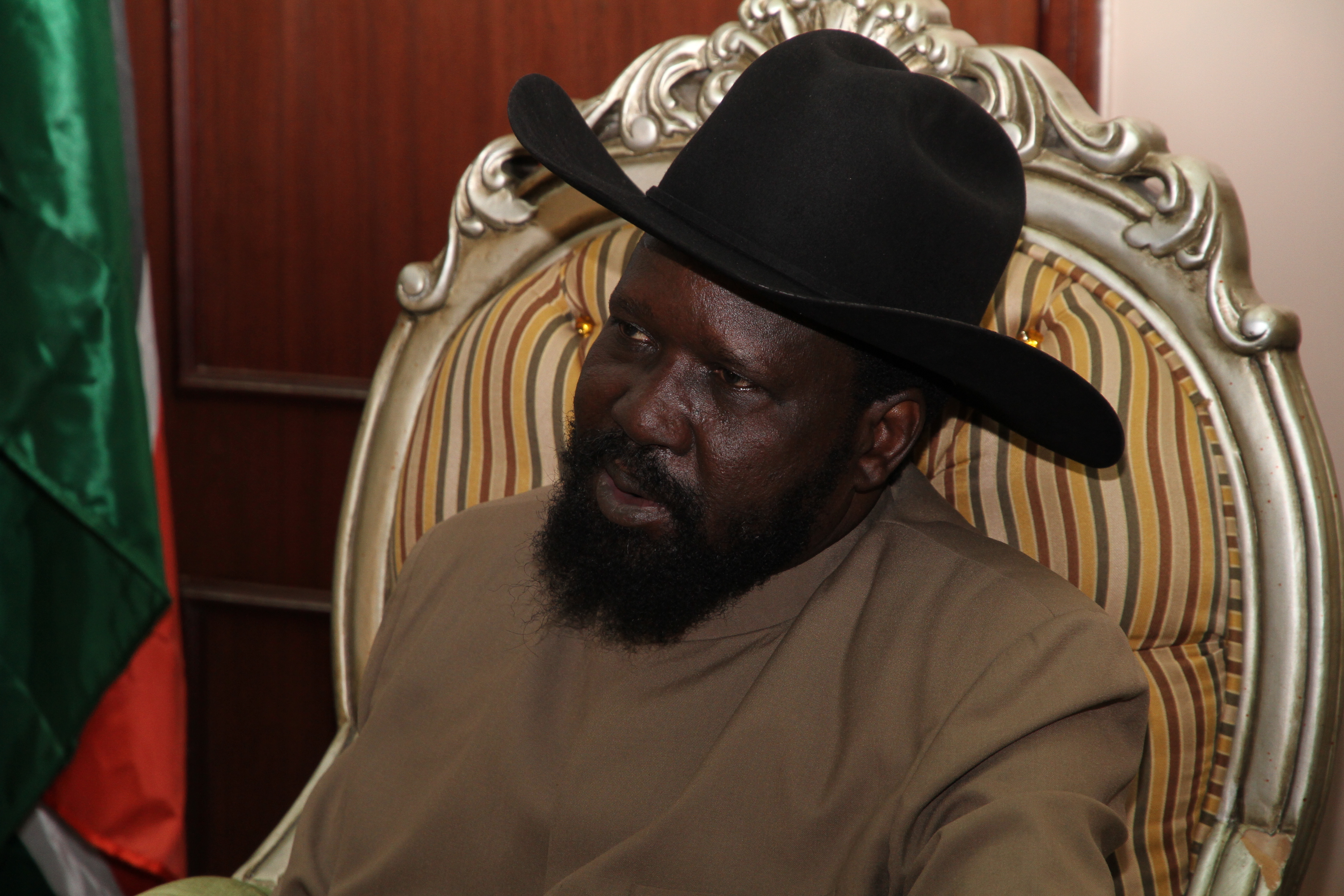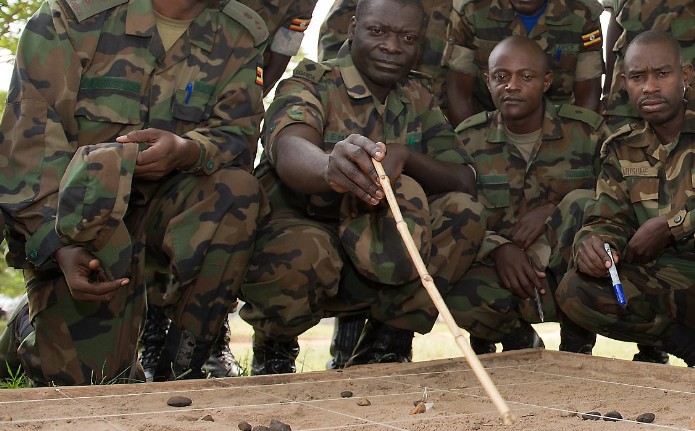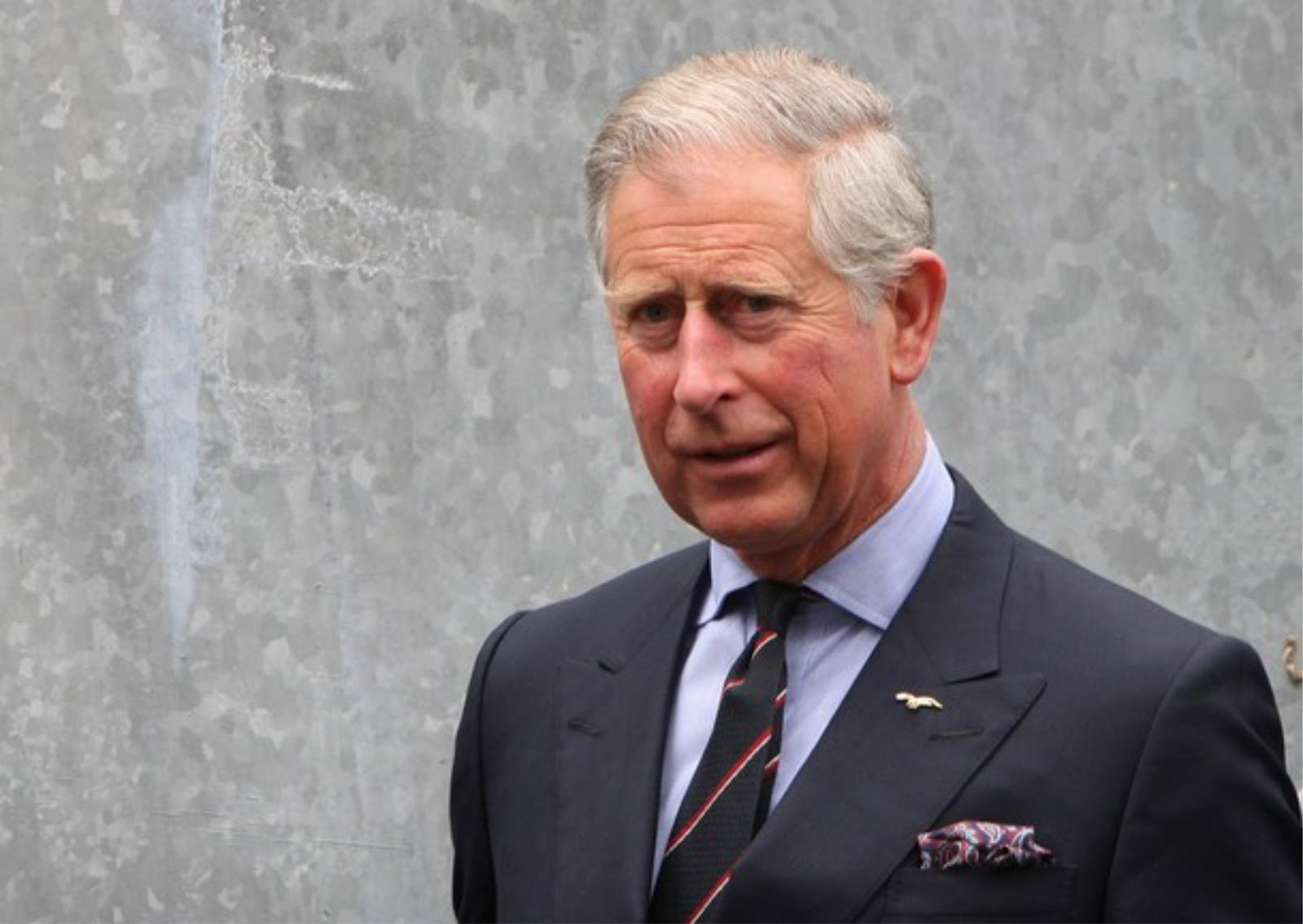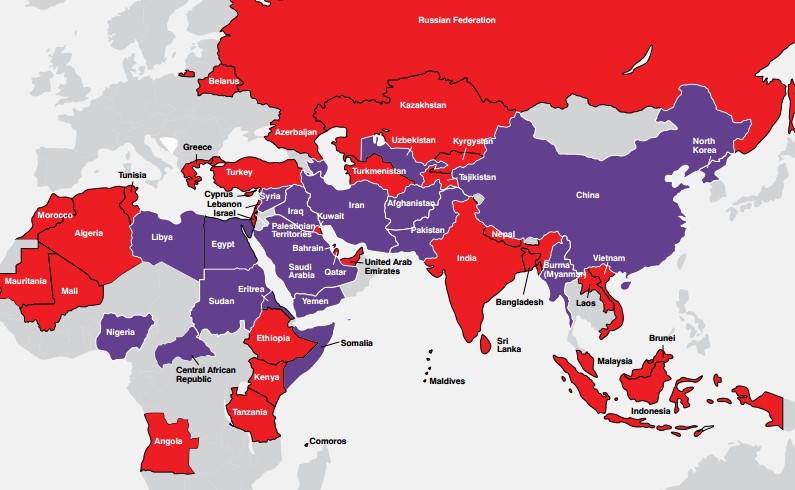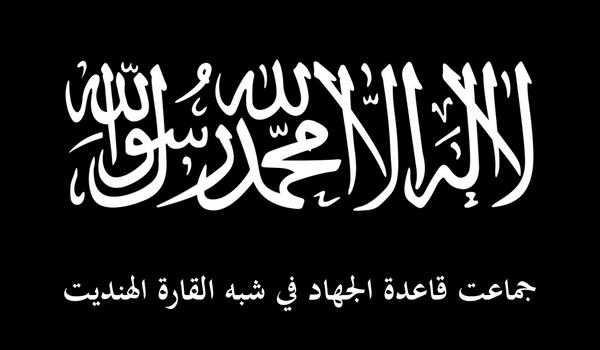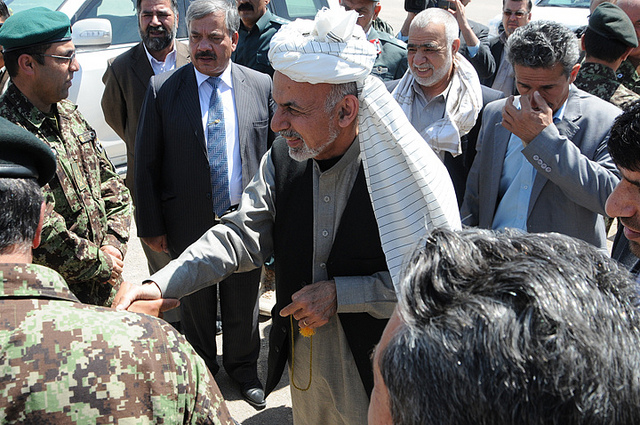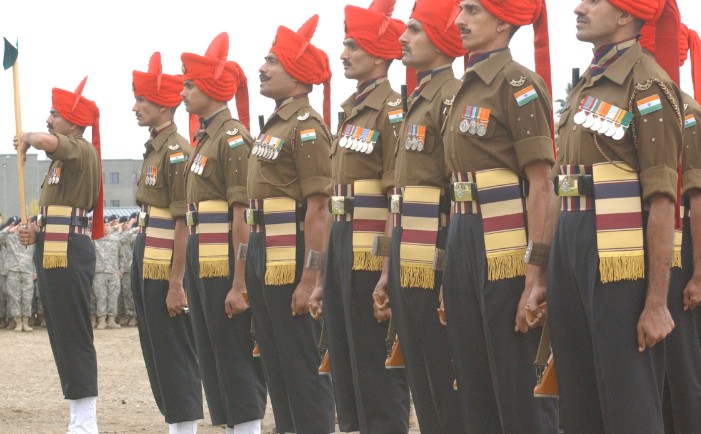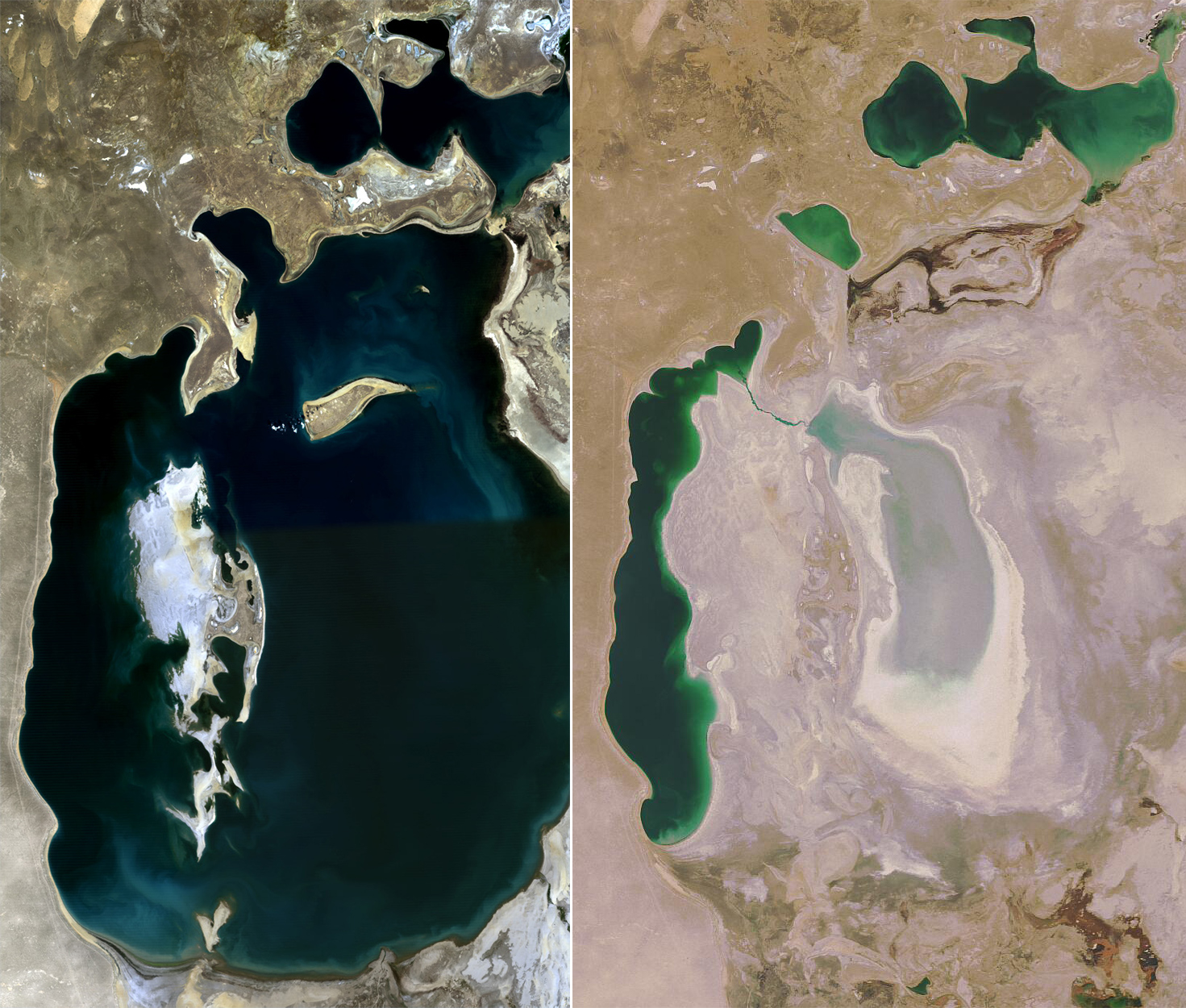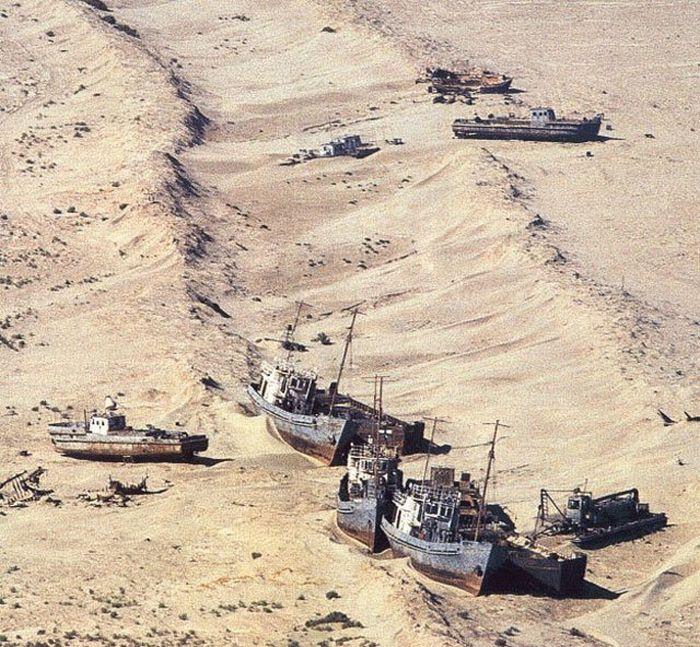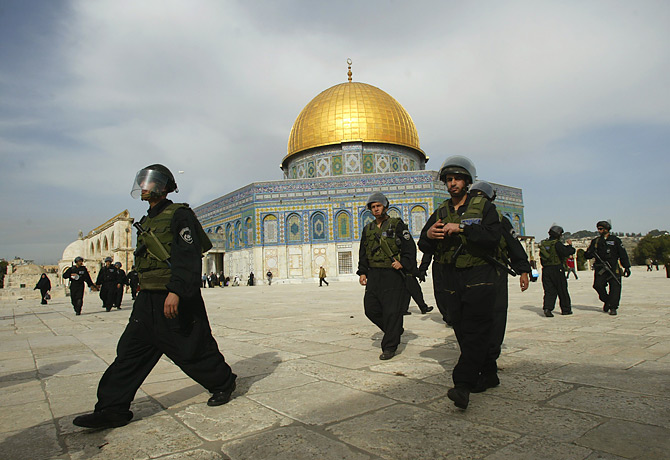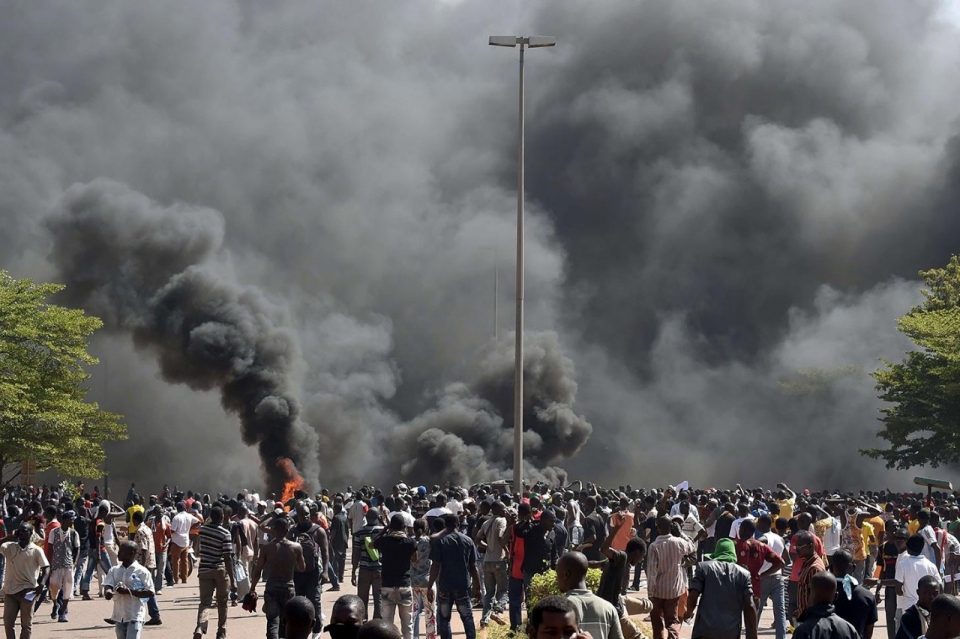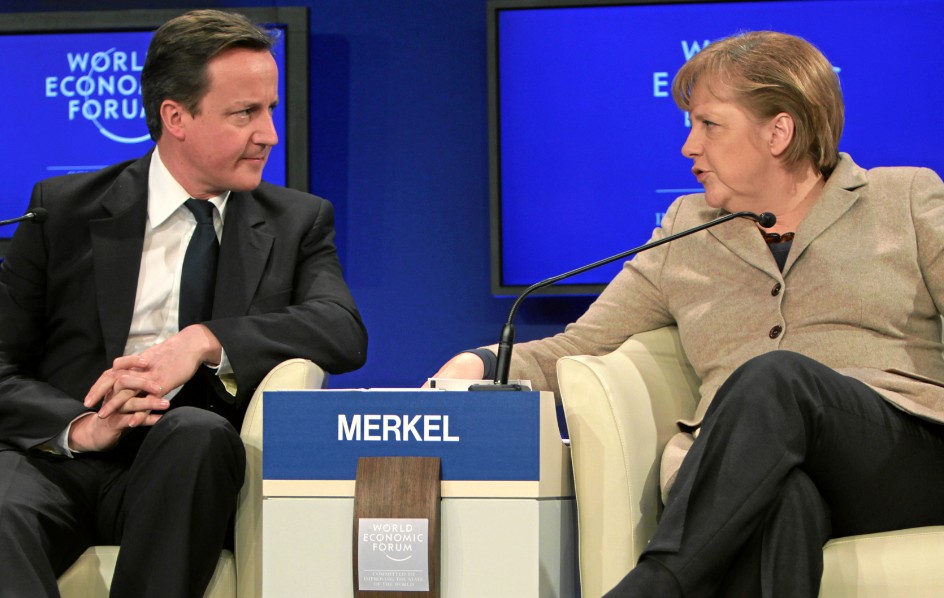Religious persecution in the world is worsening, mostly in Muslim countries linked to extremist Islam, but also under authoritarian regimes in Asia, according to a comprehensive report by Aid to the Church in Need, an international charity group based in the UK.
“Where there has been a change concerning religious freedom, that change has almost always been for the worse,” found the authors of the report. “In the 196 countries analysed, change for the better is noted in only six countries. Deteriorating conditions are recorded in 55 countries (or 28 percent).”
In those six countries of improvement, four were still countries with “high” or “medium” persecution–Iran, United Arab Emirates, Cuba and Qatar.
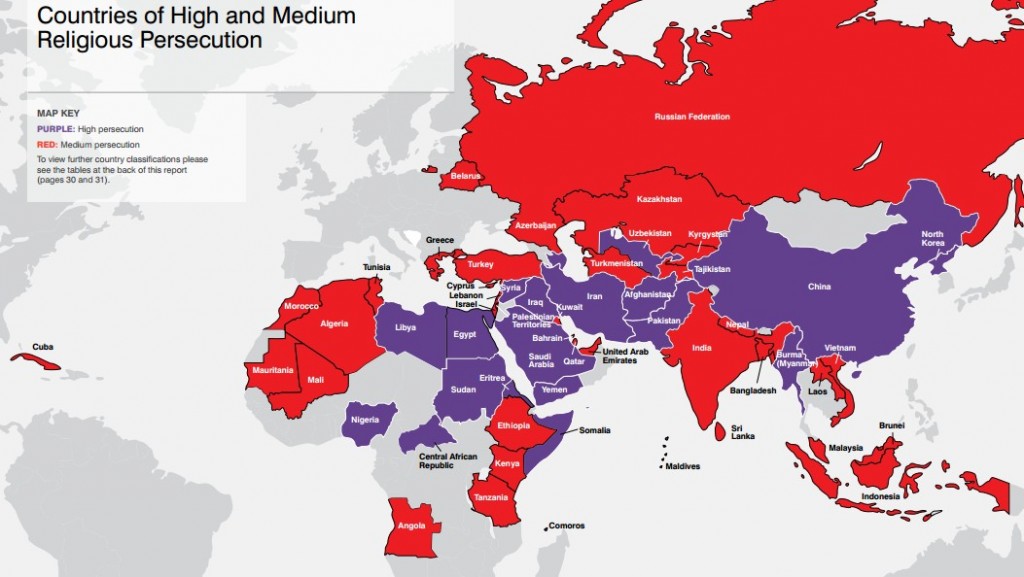 Of the 20 countries found by the report to have the worst religious persecution, 14 were Muslim countries linked to extremist Islam–Iran, Iraq, Saudi Arabia, Syria, Egypt, Libya, Maldives, Yemen, Somalia, Sudan, Nigeria, Central African Republic, Afghanistan and Pakistan.
Of the 20 countries found by the report to have the worst religious persecution, 14 were Muslim countries linked to extremist Islam–Iran, Iraq, Saudi Arabia, Syria, Egypt, Libya, Maldives, Yemen, Somalia, Sudan, Nigeria, Central African Republic, Afghanistan and Pakistan.
Read more: Prince Charles Appeals to Muslims About Persecution of Christians in the Middle East
“Throughout parts of the Middle and Far East, the phenomenon of the mono-confessional state is emerging,” the report stated. “Where once various Christian and Muslim groups managed to live together for centuries, there is now a growing tendency for the dominant religious group to insist, often through the imposition of Shari‘a law or devices such as a ‘blasphemy law’, on universal conformity of religious practice.”
The other countries that most persecuted religious faithful were China, Burma, North Korea, Azerbaijan, Uzbekistan and Eritrea.
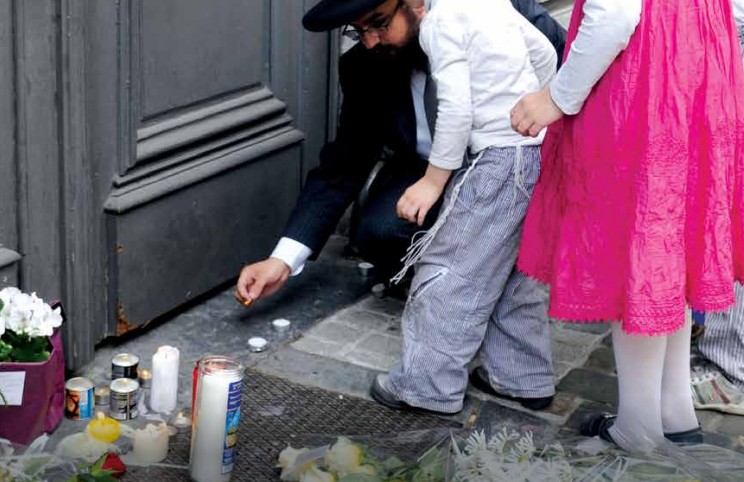 The report provided several illustrative examples of the types of serious persecution taking place around the world.
The report provided several illustrative examples of the types of serious persecution taking place around the world.
In Nigeria, schoolgirls–mostly Christian–were kidnapped by a militant group and forced to convert to Islam.
In Belgium, a radical Islamist shot dead four people at a Jewish museum.
In Tibet, Chinese police beat to death a Tibetan Buddhist monk while holding the monk in prison on charges of “maintaining contacts with foreign countries”–communication with the outside world is illegal for Tibetans under Chinese rule. When his body was returned, his family coud say nothing of the incident or they would be killed.
In Pakistan, 22 Shia pilgrims were killed and 20 wounded in a bomb attack while travelling on their bus.
In Bahrain, Christian practice is allowed for the most part only on the grounds of foreign embassies and private homes, and, although Muslim men are permitted to marry Christian women, Christian men cannot marry Muslim women.
In Sudan, pregnant Christian woman Meriam Ibrahim narrowly escaped a death penalty for “apostasy” after converting to Christianity.
In Burma, state authorities proposed limiting births for Muslims–who already do not have rights to full citizenship–to restrict “rapid population growth” and “contain sectarian violence.”
In Iran, dozens of state security agents surrounded a Tehran mosque and prevented worshippers from entering.
In North Korea, South Korean missionary Kim Jung-Wook was sentenced to hard labor for allegedly spying and trying set up underground churches. He was later forced to act in a performance at a North Korean press conference in which he appealed for mercy, apologized, and admitted that he had received assistance from South Korea’s intelligence agency.
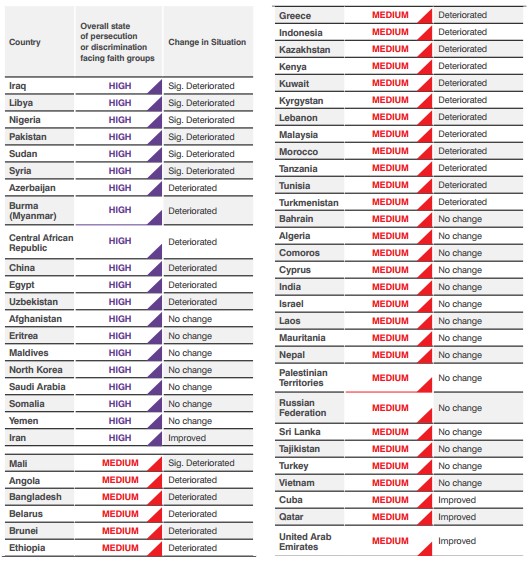
Persecution has significantly worsened in recent months and years. During the period under review, persecution increased, particularly in Muslim countries, where the most serious violations took place.
Religious freedom was also found to be on the decline in the West. Among the problems are discrimination against Jews, including low-level violence, prompting emigration of European Jews to Israel.
The report noted that Western European countries were becoming more like the multi-faith Middle East, which was creating tensions, political and social. The report also noted that a lack of “religious literacy” in Western politics and international media was hampering productive dialog and policy making.
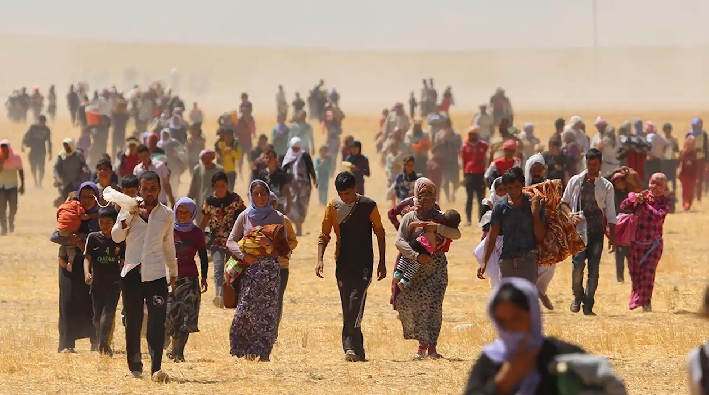 Worldwide, Christians remain the most persecuted religion, the report found. This was due to the wide geographic distribution of Christians, in addition to their high numbers. Muslims, too, were facing serious persecution at the hands of other Muslims and under authoritarian governments in Asia.
Worldwide, Christians remain the most persecuted religion, the report found. This was due to the wide geographic distribution of Christians, in addition to their high numbers. Muslims, too, were facing serious persecution at the hands of other Muslims and under authoritarian governments in Asia.
The report was based on factors informing the likelihood of religiously inspired violence and/or intolerance in each nation.
The authors of the report suggested that greater responsibility should be accepted by religious leaders. The authors also provided individual country reports.
“We conclude that, to reverse the disturbing trends identified in this Report (sic), responsibility for combatting violence and persecution rests, first and foremost, within religious communities themselves,” stated the authors of the report. “The necessity for all religious leaders to loudly proclaim their opposition to religiously inspired violence, and to re-affirm their support for religious tolerance, is becoming ever more urgent.”
